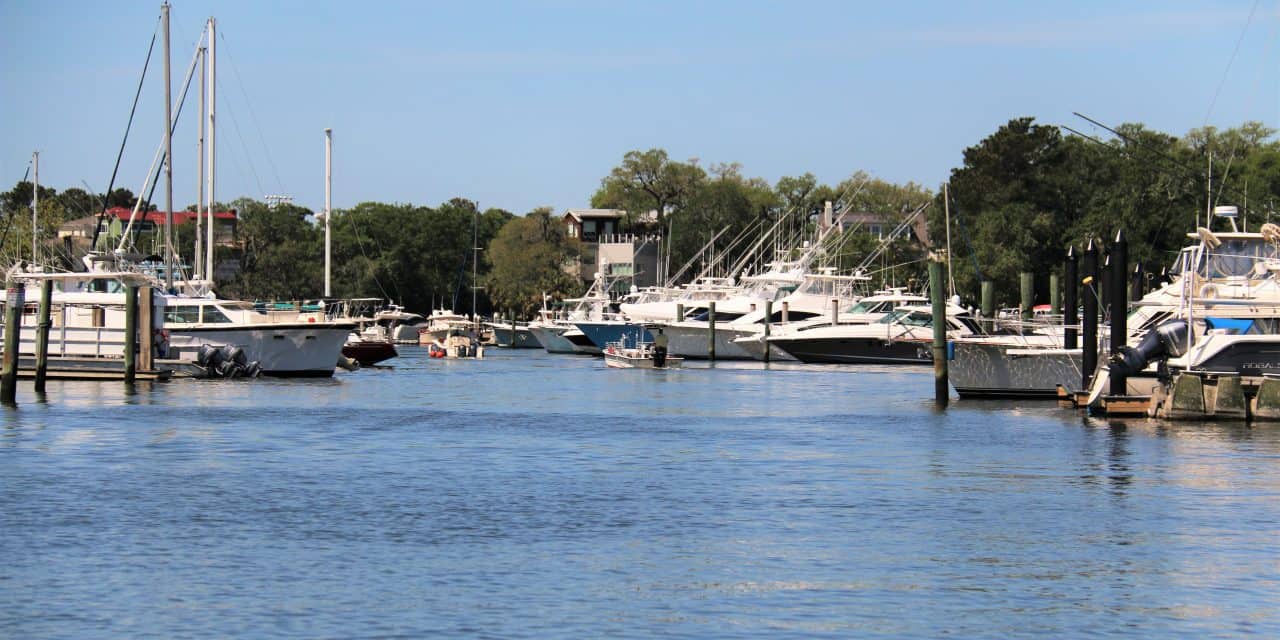The 7 Deadly Sins of Boat Buying
In our recent companion article, Three Mistakes to Avoid When Selling Your Boat, we noted that, in recent years, the sale of expensive new and used pleasure boats has become relatively commonplace, thus raising the stakes for buyers and sellers alike in sale and purchase transactions. In that article, we pointed out a few things that Sellers can do to make sure that their transaction goes smoothly, and today, I thought it would be good to give the buyers and prospective buyers out there a few tips. Financially speaking, there are many reasons to make sure that sales transactions are conducted in such a way that both the buyer and seller are aware of their respective responsibilities both before and after the sale is completed. As attorneys who deal with issues within and related to the maritime industry, we are fairly regularly contacted by two categories of potential clients: 1. those that need assistance with various aspects of completing a vessel sale or purchase, and 2. Those who did not involve an attorney in their transaction and are now involved in legal disputes arising out of the sale. While not all-encompassing, the following are a few, fairly common, mistakes (“the Seven Deadly Sins”) that you should try to avoid when buying a boat in South Carolina (and while these transgressions may not truly be deadly, they may make you wish that you had never thought about buying a boat to begin with):
1. BUYING WITHOUT A WRITTEN CONTRACT
This is the biggest mistake that I see in boat buying, bar none. It applies across the dollar-range of the purchase spectrum for non-brokered boats. It is not so surprising that smaller cash sales go forward without a contract, but I am constantly amazed that even smart business people who insist on written contracts for almost everything will wire hundreds of thousands of dollars to a person that they don’t know, for a boat that they haven’t seen, without any enforceable contract to fall back on when something goes wrong. Simply amazing. Making sure that you have a simple, well-written contract of sale can go a long way towards getting what you have bargained for in the transaction and having a remedy if things go wrong. It doesn’t necessarily need to be complex, or written in legalese, or even drafted by a lawyer, but in my opinion, everyone should have a simple agreement in writing that sets out the basic details of the agreement and is signed by the buyer and seller. Bonus points if you remember to add a sentence that says that if you have to bring any action to enforce the agreement, you will be entitled to reimbursement of your reasonable attorneys’ fees and costs. This simple step could save you thousands of dollars if “IT” truly hits the fan.
2. SIGNING A PURCHASE CONTRACT THAT YOU DON’T UNDERSTAND
The opposite situation from number 1 above is the purchaser who is presented with a purchase contract by a dealer, broker, or seller and signs the agreement without understanding the provisions. As a buyer, if you are presented with a pre-printed purchase contract, it almost always contains provisions that are inserted for the sole purpose of eliminating legal rights that you are given by default under South Carolina or Federal law – usually as to warranty claims against the seller or his representatives. Never sign anything that you don’t read or understand. If it is worth buying the boat, it is worth understanding the bargain that you are making. Ask someone that you trust to explain the document to you before you sign so that you can understand what rights you are giving up, and try to strike a fair bargain based on those terms.
3. NOT ASKING THE RIGHT QUESTIONS
Another common mistake that buyers make is not asking the seller the right questions about the boat. This is especially important for smaller purchases where a marine survey might not make economic sense. Sellers have an obligation to disclose latent (not readily observable on inspection) material defects to a prospective purchaser. Also, in many cases, a seller will be held to factual representations that he or she makes about the condition or capabilities of the boat or motor. So, ask questions to get the facts straight from the seller, and, if possible, do it in writing by email or even other electronic messaging.
Make sure to ask about: (1) prior accidents, (2) prior repairs, especially to the hull and engine, (3) ask them to tell you everything that they know of that is currently a problem with the boat or motor, (4) whether the property taxes have been paid (5) if there are any liens of any kind on the boat, (6) if state titled, ask whether the titles to the boat and motor are in the current seller’s name(s), (8) if documented with the USCG, ask whether the documentation is up to date, (9) ask about how they got the boat and why they are selling, and (10) tell them what purpose you intend to use the boat and ask them whether this boat will be suitable for that purpose. Not only can the responses to the above questions be enlightening, they may also be useful in recouping some or all of your money if the boat turns out to have hidden defects that the owner knew about.
4. BUYING WITHOUT A MARINE SURVEY
Although not a substitute for asking the seller pointed questions about the condition of the vessel, everyone who is involved in a transaction where a significant amount of money is changing hands should get the vessel surveyed by a competent marine surveyor. The survey will give you an indication of the overall condition of the vessel and its components and make it easier for you to decide if the negotiated purchase price is reasonable under the circumstances or if you should try to get a better price or just walk away.
5. BUYING A BOAT FROM SOMEONE OTHER THAN THE TRUE OWNER!
I know….I know.. this sounds like a no-brainer, but it happens – all. the. time. Especially in cash sales of recreational vessels under $10,000. It is illegal to sell a boat or motor that does not have a title or that is mis-titled (titled in a name other than that of the person claiming ownership) S.C. Code section 50-23-190(3). A quick search of Craigslist or Facebook Marketplace, however, reveals that there are many boats and motors for sale without titles. Rest assured, many more are for sale that are mis-titled, and this fact is not mentioned in the advertisement. This situation often arises because the former purchaser did not want to pay the taxes and fees to title and own the boat in their name. Or, sometimes, sellers will claim to have good title and then, when the day comes to swap the boat and title for the purchase money, they will suddenly “discover” an issue and will only be able to give a bill of sale. So, how do you protect yourself from getting a boat without good title that you can transfer into your name? Ask the seller directly early on if they have title to the boat (and motor) in their name. Then, get a copy of their drivers’ license and verify that they are the person on the titles. It is far better to know about defects in the title before you pay the money. If you find out after you have paid for the boat, then it is more difficult to get the seller to fix the problems.
Also, don’t be tempted to try to “correct the paperwork” yourself by signing someone else’s name. Shortcomings in the titling paperwork are very common in recreational vessel titling today. South Carolina is one of only 6 states that titles outboard motors, and the titling requirements can be confusing when purchasing a boat or motor from another state. Sometimes, when buyers find out that their titling documentation is deficient, they are tempted to sign the seller’s name on the new documents to “cure” a problem. Sometimes, the seller just instructs them to do this. In South Carolina, this is a FELONY, and it is always better to go through the process in the right way and work with the seller to cure the problems with the documentation than to get into trouble trying to save a few days of time and work on straightening it out.
6. NOT CHECKING TO MAKE SURE THAT THE PROPERTY TAXES HAVE BEEN PAID
This is very common as well. You go look at the boat, ask the right questions, the title paperwork checks out, and you pull the trigger and go through with the transaction. All seems good until you get to the DNR titling office and the clerk says, “by the way, there is an $800 delinquent tax bill that is outstanding on this boat from the past few years, and you will need to satisfy that before we issue you a title.” This can easily be avoided in most instances by checking with DNR online before you hand over the money. https://www2.dnr.sc.gov/BoatFacts/BoatFacts/SearchBoatFacts allows you to search by the seller’s name, hull ID number, or registration number and should let you know if there is a property tax issue.
7. PAYING CASH WITHOUT GETTING A RECEIPT OR BILL OF SALE REFLECTING THE TRUE AMOUNT
I don’t see this one as much, but it comes up from time to time. You should avoid paying cash for a boat if at all possible. If you must pay cash, get a receipt or bill of sale signed by the seller reflecting the actual cash purchase price of the boat, motor, and trailer, as applicable so that you don’t end up in a situation where it is your word against the seller’s word as to how much money changed hands.
So there you go. Seven things to avoid when buying a boat. There are certainly more that I could come up with, but these are some of the most common problems that we see, and are for purposes of this article the “7 Deadly Sins” to avoid. More next week on The Admiralty Docket. Until then, remember, your rights and responsibilities may change as you approach the shore and may God Almighty grant you pleasant sailing.
Disclaimers – The rules governing the professional conduct of lawyers mandate that we let you know the following information to prevent any confusion or misunderstandings about the content of this article:
The above information is provided for the reader’s general knowledge only and is not intended to be legal advice for anyone’s particular situation. The law is ever-changing, and different circumstances may require the application of different law or result in the above guidelines being irrelevant. If you have legal questions related to this content, you should consult an attorney of your choosing for advice regarding your individual situation.
Each case that we work on is different, and successful results that we may discuss related to cases that we have handled in the past do not mean that similar results are necessarily achievable in future cases that we may handle.
John Townsend Cooper is the attorney responsible for this content. His office is located at 1476 Ben Sawyer Blvd., Mount Pleasant, South Carolina 29464.
Contact Us About Your Case
If you would like a free, confidential consultation with an attorney at our firm, or if you need assistance in finding the right attorney for your case, please fill out this form below:











